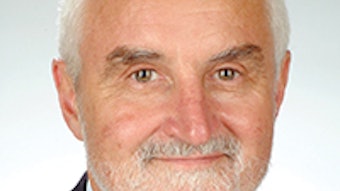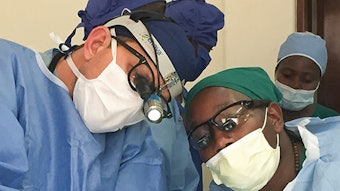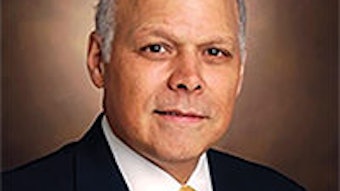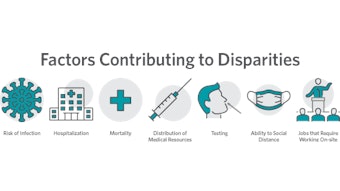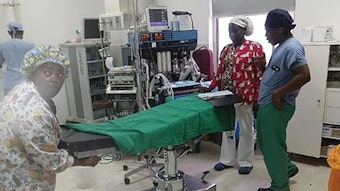From the Education Committees
Chronic rhinosinusitis (CRS) is a chronic inflammatory disease involving the sinonasal mucosa that can be classified into subtypes based on the presence or absence of nasal polyps. CRS with nasal polyps (CRSwNP) is a Type II mediated inflammatory process with elevated eosinophils and inflammatory cytokines, such as Interleukin (IL)-4, IL-5, and IL-13.
Biologics in the Management of Chronic Rhinosinusitis with Nasal Polyposis
Alice Z. Maxfield, MD, and Stacey T. Gray, MD, For the Rhinology and Allergy Education Committee
Chronic rhinosinusitis (CRS) is a chronic inflammatory disease involving the sinonasal mucosa that can be classified into subtypes based on the presence or absence of nasal polyps. CRS with nasal polyps (CRSwNP) is a Type II mediated inflammatory process with elevated eosinophils and inflammatory cytokines, such as Interleukin (IL)-4, IL-5, and IL-13.1 Asthma, which shares similar immunologic features, frequently accompanies CRSwNP as a comorbid condition in up to 48% of patients.2 Aspirin-exacerbated respiratory disease (AERD) is a subtype of CRSwNP that presents with a triad of bronchial asthma, nasal polyposis, and respiratory reaction to aspirin and nonsteroidal anti-inflammatory drugs. Better understanding of the pathophysiology of CRSwNP has led to the use of novel therapies that target the inflammatory pathway. Most recently biologics have emerged as an option for treatment for patients with severe and recalcitrant disease.
Studies have shown that CRSwNP has a significant negative impact on patient quality of life, affecting work productivity and sleep, and leading to social and emotional consequences. There is a 4.2% prevalence of CRSwNP in the United States, and of these, 16% of patients have AERD. 2,3 Traditional treatment of CRSwNP includes a combination of therapies that decrease inflammation of the sinonasal mucosa and thereby minimize patient symptoms. Treatment for CRSwNP typically starts with standard medical therapy, including antibiotics, oral corticosteroids, topical nasal steroids, and nasal irrigations. Ultimately, endoscopic sinus surgery can be considered for patients who fail to respond to appropriate medical treatment. Unfortunately some patients with CRSwNP, especially patients with AERD, are susceptible to more severe disease with early recurrence of nasal polyps after surgery, systemic corticosteroid dependence, and poor asthma control despite appropriate medical and surgical intervention.4 Thus, targeted therapies that control the underlying pathophysiology provide another option for management of this chronic disease.
Biologic drugs target specific substances in the immune system that cause inflammation. Designed as monoclonal antibodies that are directed against different inflammatory mediators: omalizumab (IgE), mepolizumab (IL-5), reslizumab (IL-5), and dupilumab (IL-4, IL-13) have all been utilized. Previous work has shown successful management of persistent asthma, eczema, and chronic idiopathic urticaria with these biologics. More recently biologics have been applied to the treatment of CRSwNP. Dupilumab was originally approved in 2017 for uncontrolled eczema and eosinophilic asthma or those dependent on oral corticosteroids. In 2019, the FDA approved dupilumab specifically for the treatment of CRSwNP inadequately controlled with standard therapy.5
Several clinical trials have studied the benefits of biologics in the management of CRSwNP. Mepolizumab has been found to reduce nasal polyp size in those with severe eosinophilic nasal polyposis.6 In recent randomized controlled trials, patients receiving dupilumab compared to a placebo group had significant improvement in nasal congestion and obstruction, sense of smell, and overall decreased need for oral corticosteroids and surgery. In those study participants who also had asthma, lung function improved and asthma was better controlled. There were also reductions in nasal polyp size and improvements seen on imaging studies. Patients experienced improvement of symptoms as early as four weeks into treatment and continued to experience greater improvement than the placebo group for up to one year.4,7 Although generally well tolerated, the most common reported adverse events were nasopharyngitis, injection site reaction, epistaxis, and headache.4,7 One of the biggest concerns regarding the use of biologics is the cost of therapy. A conservative yearly cost of $31,000 for dupilumab was estimated for the treatment of asthma.8 Additionally, from a cost utility analysis perspective, primary and revision endoscopic sinus surgery was found to be more cost-effective compared to dupilumab for CRSwNP patients.9 More studies are needed to assess the long-term results of biologic therapy in the treatment of CRSwNP, and the development of treatment algorithms will help inform the appropriate usage in a safe and cost-effective manner.
Current medical and surgical treatments of CRSwNP have limitations, especially in those patients with severe, recalcitrant disease who require frequent systemic corticosteroids or multiple revision surgeries. Biologics offer the ability to target the underlying immunologic process that drives the Type II mediated disease progression. CRSwNP significantly impacts quality of life but also has a substantial impact on healthcare cost and resource utilization; thus, biologics, when utilized appropriately, offer a new and innovative option for patients with poorly controlled disease.
REFERENCES
- Orlandi RR, Kingdom TT, Hwang PH. International consensus statement on allergy and rhinology: rhinosinusitis executive summary. Int Forum Allergy Rhinol. 2016;6:S3-S21.
- Stevens W, Peters A, Hirsch A, et al. Clinical characteristics of patients with chronic rhinosinusitis with nasal polyps, asthma, and aspirin-exacerbated respiratory disease. J Allergy Clin Immunol Pr. 2017;5(4):1061-1070.
- Settipane G, Chafee F. Nasal polyps in asthma and rhinitis. a review of 6,037 patients. J Allergy Clin Immunol. 1977;59(1):17-21.
- Bachert C, Han J, Desrosiers M, et al. Efficacy and safety of dupilumab in patients with severe chronic rhinosinusitis with nasal polyps (LIBERTY NP SINUS-24 and LIBERTY NP SINUS-52): results from two multicentre, randomised, double-blind, placebo-controlled, parallel-group phase 3 trials. Lancet. 2019;394(10209):1638-1650.
- FDA approves first treatment for chronic rhinosinusitis with nasal polyps. Published June 26, 2019. https://www.fda.gov/news-events/press-announcements/fda-approves-first-treatment-chronic-rhinosinusitis-nasal-polyps
- Gevaert P, Van Bruaene N, Cattaert T, et al. Mepolizumab, a humanized anti-IL-5 mAb, as a treatment option for severe nasal polyposis. J Allergy Clin Immunol. 2011;128(5):989-995.
- Bachert C, Mannent L, Naclerio R, et al. Effect of subcutaneous dupilumab on nasal polyp burden in patients with chronic sinusitis and nasal polyposis: A randomized clinical trial. JAMA. 2016;315(5):469-479.
- Tice J, Campbell J, Synnott P, et al. The effectiveness and value of biologic therapies for the treatment of uncontrolled asthma. J Manag Care Spec Pharm. 2019;25(5):510-514.
- Scangas G, Wu A, Ting J, et al. Cost utility analysis of Dupilumab versus endoscopic sinus surgery for chronic rhinosinusitis with nasal polyps. Laryngoscope. Published online April 3, 2020. doi: 10.1002/lary.28648


